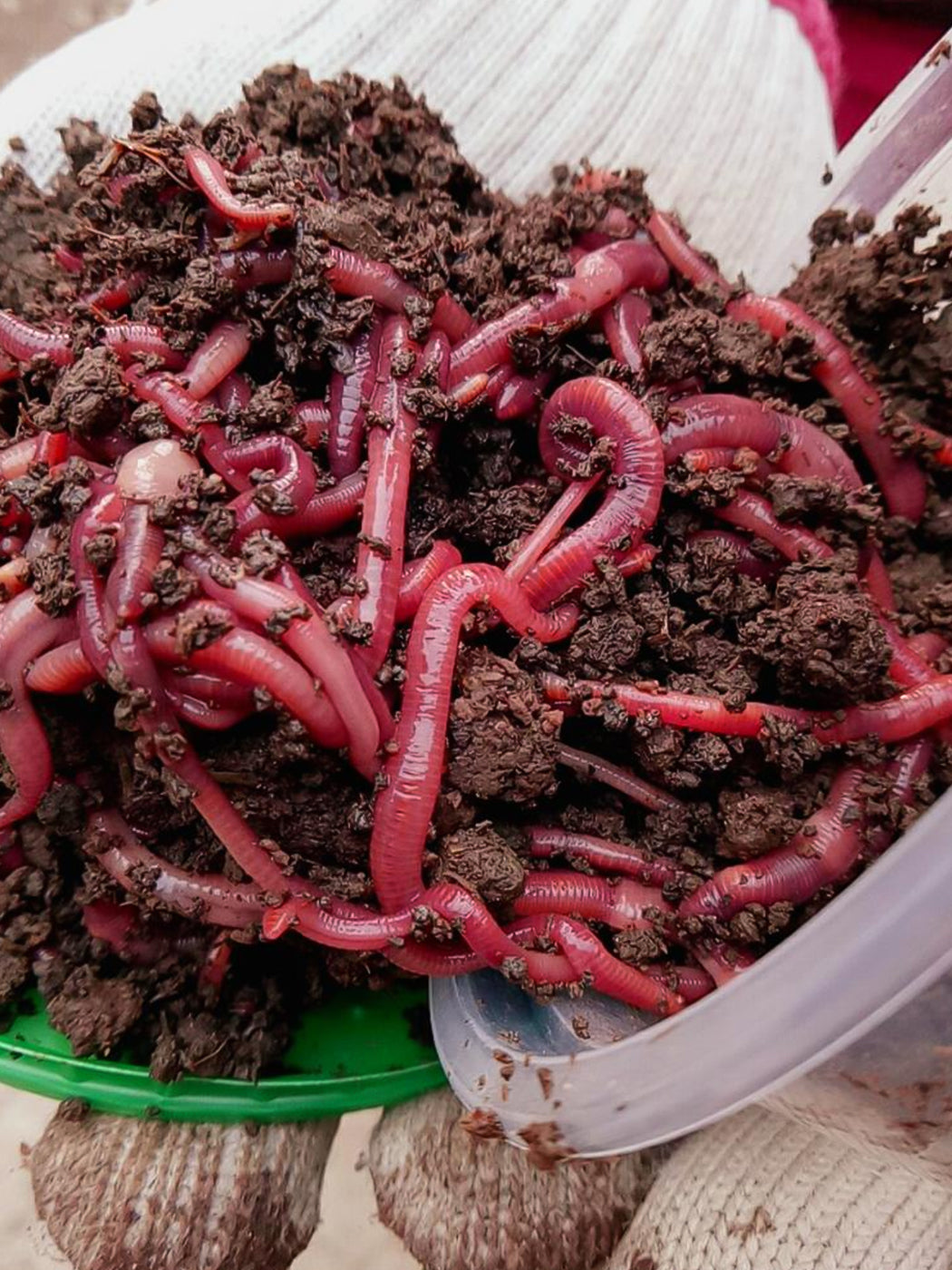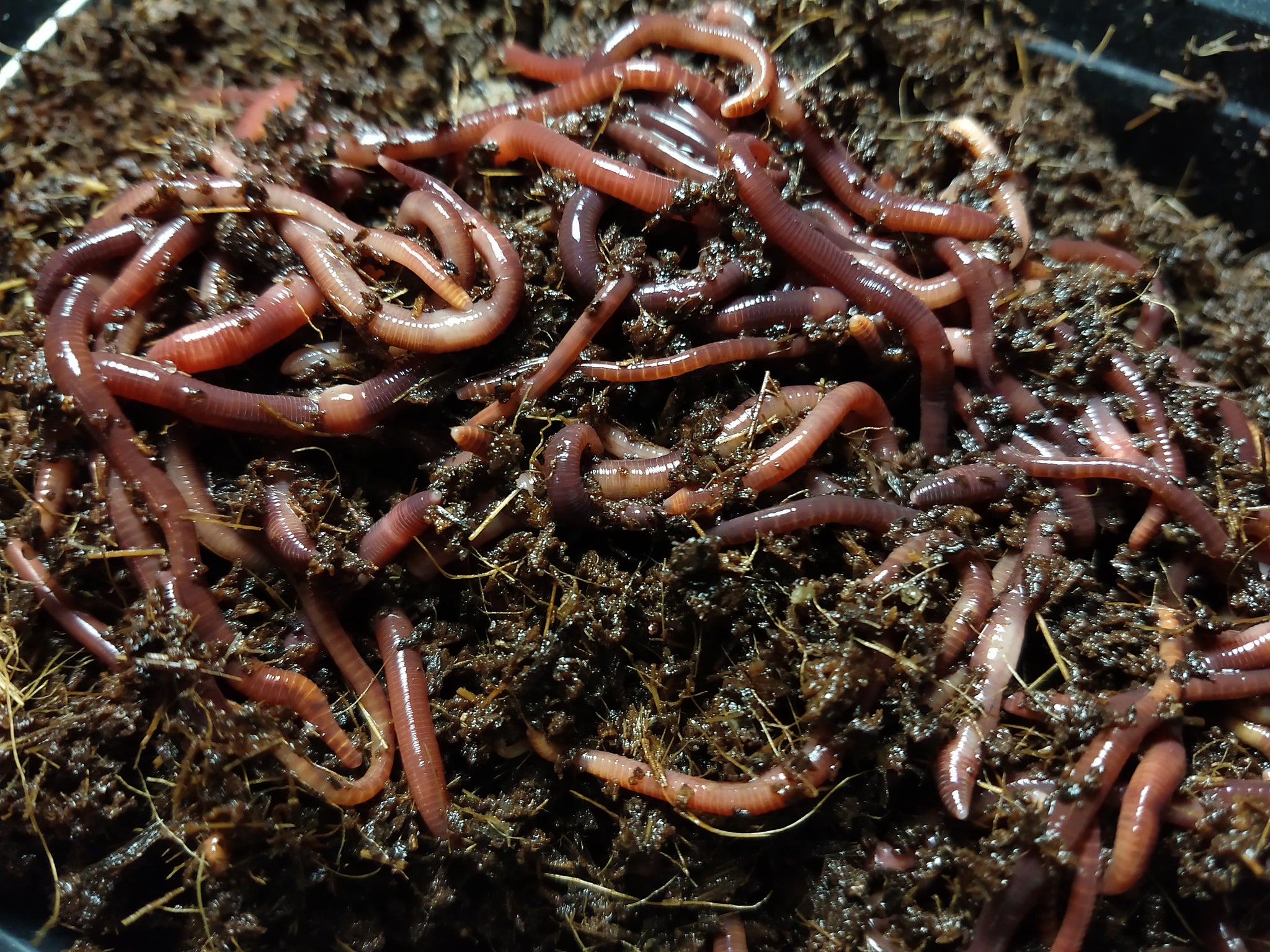The Unbelievable World of Red Wigglers: Increase Your Soil Fertility Today
These small yet efficient microorganisms transform natural waste right into beneficial worm spreadings, substantially improving soil health and wellness and promoting lasting practices. As we explore the advantages of vermicomposting and the practical steps to create an effective worm bin, the possible influence of these worms on your horticulture success becomes progressively noticeable.
Comprehending Red Wigglers
Red wigglers, clinically known as Eisenia fetida, are a species of earthworm that play a critical function in enhancing soil fertility. These worms thrive in organic-rich atmospheres, such as garden compost heaps and rotting plant material, where they take in natural waste and eliminate nutrient-dense castings. Their distinct makeup, including a fractional body and a clitellum, permits them to reproduce swiftly and successfully process huge quantities of organic matter.

The environmental relevance of red wigglers extends past simple waste handling; they add to the soil food internet, fostering a diverse neighborhood of microbes that even more enhance dirt health. Understanding the biology and actions of red wigglers is vital for using their full potential in sustainable farming and gardening techniques.
Advantages of Vermicomposting
(Red Wiggler Express)Harnessing the power of red wigglers via vermicomposting offers various advantages that dramatically enhance dirt health and fertility. Among the main advantages is the production of nutrient-rich worm castings, which are an outstanding all-natural plant food. Red Wiggler Express. These spreadings include important nutrients like nitrogen, phosphorus, and potassium, promoting durable plant development and improving plant returns
In addition, vermicomposting boosts soil framework and aeration. The visibility of worm spreadings boosts dirt texture, enabling much better water retention and drainage. This balanced moisture degree is important for root growth and the general health and wellness of plants. In addition, red wigglers aid break down natural matter, speeding up decomposition and reusing nutrients back into the soil.
Vermicomposting also fosters microbial task, which is essential for a healthy and balanced dirt ecosystem. Beneficial microbes thrive in the presence of worm spreadings, aiding in the failure of organic products and boosting vitamins and mineral accessibility to plants.
Last but not least, vermicomposting works as a reliable waste monitoring option, reducing garbage dump waste by recycling kitchen area scraps and various other organic materials. This not only contributes to environmental sustainability however also promotes a circular economic climate within horticulture and agriculture.
Exactly How to Establish a Worm Bin
Establishing a worm bin is a straightforward procedure that can considerably enhance your composting initiatives. Begin by choosing a suitable container, which can vary from a readily offered worm bin to a straightforward plastic or wood box (Red Wiggler Express). Make certain the container has appropriate ventilation; little openings in the cover and sides will certainly assist in air circulation
Following, develop a bed linen layer to provide a comfortable setting for the red wigglers. This can be made from shredded newspaper, cardboard, or coconut coir, dampened to a moist, sponge-like consistency. Load the bin to about one-third full with this bedding product.
Once the bed linens is prepared, it's time to introduce the worms. Red wigglers prosper in natural waste, so area them gently onto the bed linens. Cover the worms with a light layer of additional bed linens to help them acclimate.
Feeding Your Red Wigglers
Providing the best food for your red wigglers is crucial for their health and wellness and the effectiveness of your composting system. Red wigglers flourish on a varied diet regimen, primarily containing organic products such as fruit and vegetable scraps, coffee premises, and shredded paper. These materials not only provide crucial nutrients but likewise contribute to the microbial activity in the worm bin, which is vital for the worms' food digestion.
It is essential to stay clear of specific foods, such as dairy items, oils, and meats, as these can bring in insects and develop unpleasant smells. In addition, citrus peels and overly spicy foods should be restricted as a result of their potential to harm the worms. A balanced technique to feeding includes checking the quantity of food presented to the bin, making sure that it is eaten within a practical time framework to stop excess waste accumulation.
To advertise ideal food digestion, it is advantageous to chop or shred larger food items before including them to the bin. This method increases the area for microbial activity, helping with quicker disintegration and enhancing the general efficiency of your composting system. Regularly observing the worms' feeding habits will certainly help you readjust their diet plan as needed.
Making Use Of Worm Spreadings in Your Garden

(Red Wiggler Express)Including worm castings right into your garden can be completed by mixing them right into the soil or using them as a leading dressing. The slow-release nature of these spreadings makes certain that nutrients are offered to plants over a prolonged period, reducing the requirement for artificial click here for more plant foods. In addition, worm spreadings contain helpful microorganisms that promote healthy and balanced dirt environments, boosting the overall durability of your yard.
To make best use of the benefits, aim to apply around one component worm spreadings to 3 components dirt in your planting beds. Routine applications can bring about enhanced crop yields and healthier plants, making worm castings a very useful source for both novice and experienced garden enthusiasts alike. By utilizing this all-natural amendment, you can cultivate a successful yard while adding to sustainable horticulture techniques.
Final Thought
Finally, red wigglers exhibit the essential function of vermicomposting in enhancing soil fertility. Their capacity to convert organic waste right into nutrient-rich spreadings dramatically enhances soil structure and supports microbial diversity. Developing a vermicomposting system not only promotes sustainable gardening techniques but additionally contributes to environmental wellness. By leveraging the benefits of these exceptional microorganisms, gardeners can cultivate extra efficient and resilient ecosystems, eventually promoting a more sustainable method to agriculture and cultivation.
 Mara Wilson Then & Now!
Mara Wilson Then & Now! Val Kilmer Then & Now!
Val Kilmer Then & Now! Andrew Keegan Then & Now!
Andrew Keegan Then & Now! Michael Fishman Then & Now!
Michael Fishman Then & Now! Ryan Phillippe Then & Now!
Ryan Phillippe Then & Now!